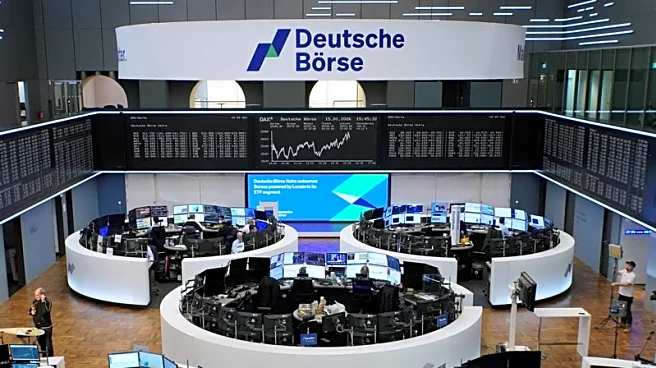What's Happening?
Ryder System Inc. reported a decline in rental demand during its third-quarter earnings call, with commercial rental revenue dropping 4% year-over-year to $242 million. The company is experiencing an extended
market downturn, leading to a decrease in its rental fleet by 12% by the end of the year. COO John Diez noted that Ryder is managing through these challenging conditions, while CEO Robert Sanchez highlighted delayed decisions from lease and dedicated customers. Despite these challenges, Ryder's operating revenue increased by 1% to $2.6 billion, driven by growth in its Supply Chain Solutions and Fleet Management Solutions segments.
Why It's Important?
The decline in rental demand reflects broader challenges in the freight market, which has been experiencing a prolonged downturn. This impacts Ryder's revenue and operational strategies, as rental services are a significant component of its business model. The company's ability to navigate these conditions and maintain revenue growth in other segments is crucial for sustaining its financial health. The delayed customer decisions indicate uncertainty in the market, which could affect Ryder's future business prospects and strategic planning.
What's Next?
Ryder is anticipating a market upturn, which would improve earnings results and potentially lead to increased capital expenditure to replenish and grow its fleet. The company may focus on optimizing its operations and exploring new business opportunities to mitigate the impact of the current market conditions. Stakeholders will be monitoring Ryder's strategic responses and financial performance closely, as these will influence investor confidence and market positioning.
Beyond the Headlines
The challenges faced by Ryder highlight the volatility in the logistics and transportation industry, where external factors such as tariffs and market cycles can significantly impact business operations. Ryder's strategic decisions during this downturn may set a precedent for how companies in the sector manage similar challenges in the future. The focus on maintaining growth in other segments underscores the importance of diversification and adaptability in business strategy.











